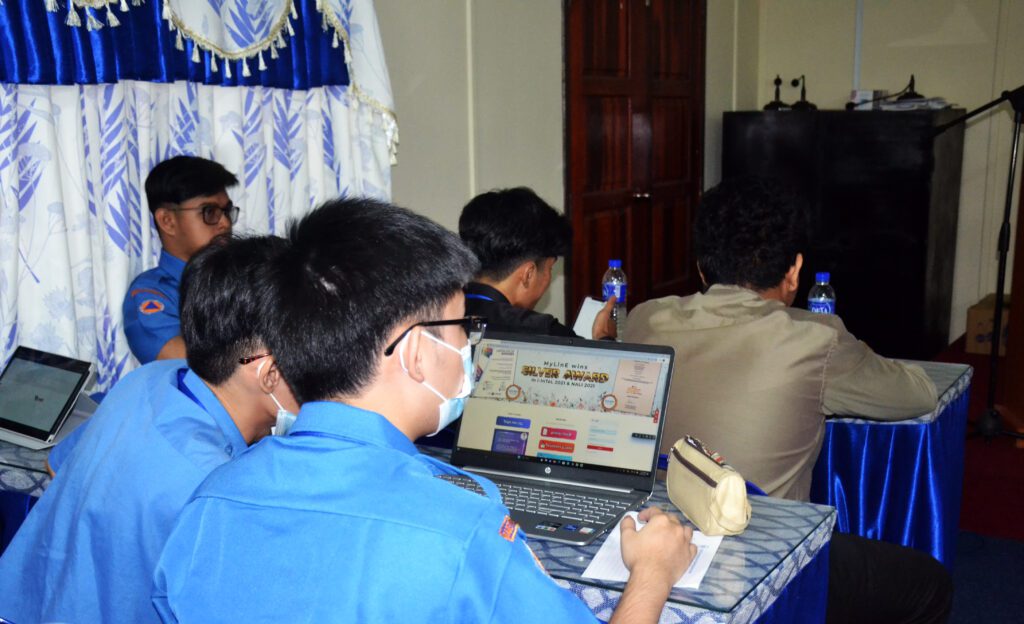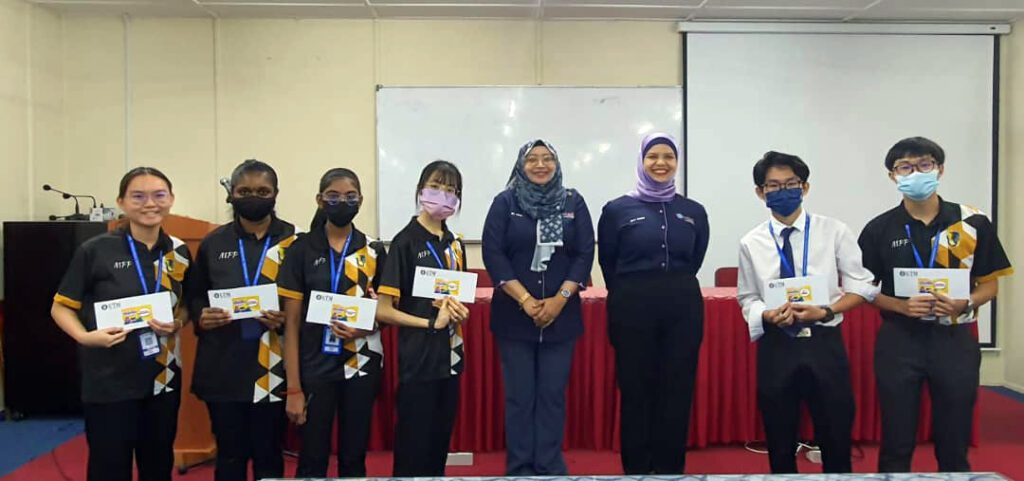
On 1st January 2024, it was announced that the Computer-Assisted Instruction (CAI) for the MUET-CEFR Reading Skills project has been awarded a 5-star rating for the Community Engagement Project. This project aims to improve targeted reading sub-skills through self-access learning.
In today’s world, the use of technology in education is inevitable, and it requires the constant development of applications and software to meet the needs of students, educators and practitioners. To keep pace with language learning and technology, the MyLinE task force developed and piloted a project called Computer-assisted Instruction (CAI) for Malaysian University English Test (MUET) Reading Sub-Skills. This project was essential as there was a scarcity of online resources available for MUET preparation.
The MyLinE task force embarked on a one-year project funded by UTMSpace to develop a self-access platform. This platform trains Form 6 MUET candidates in Sekolah Menengah Kebangsaan (SMK) Skudai on MUET reading sub-skills. Although the grant ended in February, the pilot project implementation extended for more than seven months.

As one of the earliest online English language learning platforms in Malaysia, we offer reading practices and resources that are aligned with the Common European Framework of References (CEFR). We strive to ensure that the quality and standard of these practices meet the requirements set by the Malaysia Examination Council (MPM).
In January 2023, we began a project to develop CEFR-aligned MUET (Malaysian University English Test) reading practices. We selected the existing MUET practices available in the MyLinE portal and narrowed them down to those relevant to the current CEFR-aligned MUET reading sub-skills. We then developed the practices further to target each specific sub-skill within the CEFR levels.
To help users comprehend the practices, we designed the reading texts and questions to be short and “bite-sized” quizzes. The reading sub-skills quizzes were then categorised into low, medium, and high levels of difficulty and underwent a strict vetting process.
This pilot project is unique because it incorporates a computer-assisted instruction (CAI) element and is self-accessed on an online platform. When the MyLinE task force first approached the MUET teachers of SMK Skudai, they were thrilled to be a part of the project due to its online and interactive nature. The task force then met with the 54 participants of this project, who were Form 6 students of SMK Skudai, in person. During one of their English lessons, a briefing and demonstration session were conducted to establish a rapport with the students. This was essential to ensure that the students were continuously motivated throughout the project.
The key feature of this innovation is that users will receive immediate feedback on each sub-skill they attempt. This enables users to be self-reflective and identify the reading sub-skills they need to improve. The students can also retake the quizzes to apply what they have learned from the resources available on MyLinE. The distinctive feature of the ‘Award of Marks’ used in MyLinE empowers students to be self-directed in their own learning. They can track their progress and control their learning pace as they prepare for their MUET examination. We were delighted with the results, which showed that over half of the participants responded positively, with an 18.5% increase in their reading MUET band. 37% of the students managed to maintain their MUET bands of 4.0 and 4.5.

To ensure that the pilot project has marketable value, the task force revisited the participants of SMK Skudai six months after the treatment. They conducted a follow-up inquiry to understand how effective the project was and interviewed the students to gain retrospective insight. The results were satisfying, and the feedback given by the students and teachers involved in the pilot project was positive and constructive. In September, a short competition, prize-giving, and an appreciation ceremony were held to mark the conclusion of the project, which marked the beginning of more meaningful engagements.
Authors: Dr. Hema Rosheny Mustafa, Nurul Na’immah Hamdan, Rika Diana Busri, Abu Izzat Jalaluddin, Abd Rahim Ahmad, Nurhidayah Reman & Muhammad Redza M.Nasir.
Source: UTM NewsHub
